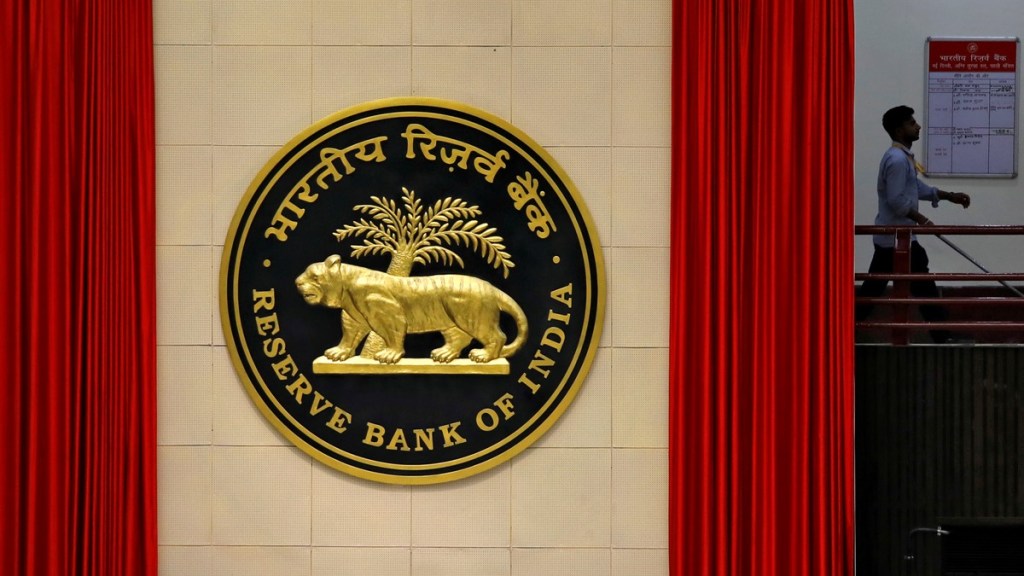The Reserve Bank of India’s (RBI) decision to ban Bajaj Finance’s two products —‘eCOM’ and ‘Insta EMI Card’ — with immediate effect on Wednesday could dent the non-banking finance company’s (NBFC) bottomline by 6% till it is revoked, analysts say.
Foreign brokerage CLSA in a note today said Bajaj Finance issues nearly 700,000 digital EMI card on a quarterly basis for which the processing fees is Rs 600. Due to the ban, the NBFC would now see absence of this fees which would lead to a revenue loss of Rs 42 crore. In addition, as per CLSA’s estimate, about 30% of Bajaj Finance digital EMI cardholders apply for a loan within three months and accordingly, the foregone revenue from those loans is another Rs 23 crore.
CLSA said Bajaj Finance’s ‘e-COM’ product generates roughly around 1 million loans each quarter, or 20%-25% of overall consumer durable loans disbursed by the NBFC. Since consumer durable loans account for 10% of overall loans of the NBFC, and 15% of net profit, if incremental 20%-25% of consumer durable loans will be impacted by the ban, the profit would be down by 4%-5%.
“Hence, all in, as long as the ban stays, profits would be impacted by 6%. Once the ban is lifted, we would expect profits to normalise,” CLSA said.
Brokerage Motilal Oswal meanwhile said with a monthly run rate of 220,000-230,000 loan volumes on e-commerce platforms and 110,000-120,000 monthly B2B loans originated through Insta EMI Card, Bajaj Finance might have to compromise on loan volumes of 450,000 over 45 days to about 900,000 over 90 days.
Overall disbursements, accordingly, could decline by 0.5%-1.6% of Bajaj Finance’s total assets under management (AUM) of Rs 2.90 trillion as of September 30, the brokerage said.
ICICI Securities meanwhile said though there will be a limited impact on Bajaj Finance’s disbursements, given that 20% of new customer acquisition is done through EMI cards, embargo on customer acquisition is expected to impact customer onboarding and thus impact fee income and thereby profitability.
While a majority of analysts say that the RBI’s action against Bajaj Finance is more of an operational than structural issue, they say the time span for revocation on the ban on the two products remains a key monitorable. The regulator had listed non-compliance with digital lending norms as the key reason for barring Bajaj Finance from offering the two products.
Jefferies said Bajaj Finance speed and rectification of processes must be tracked as the regulator tends to be highly watchful of customer interests and adherence to norms. It said in cases of ban on product offering by HDFC Bank and onboarding of new customers on Paytm Payments Bank the regulator took a longer time to revoke the ban.
“Hence, speed and quality of rectification is key. While this can be slight bump, we expect BAF’s broader earnings momentum to continue. We factor recent capital raising and see 26% Cagr in profit over FY23-26E and reiterate Buy rating with price target to Rs9,470,” Jefferies said. Bajaj Finance’s shares ended trading 2% higher at Rs 9,365.85 apiece on the BSE today.
Motilal Oswal, on the other hand, says Bajaj Finance’s management expects this embargo to be lifted within the next six-eight weeks. Underlying this was the belief that the deficiencies identified by the RBI can be rectified within the next two-three weeks, and the RBI could then review the rectifications made by the NBFC and lift the restrictions within the next five weeks.
“We acknowledge that the RBI might want to observe BAF’s compliance with digital lending guidelines for longer before lifting the embargo,” it said.
